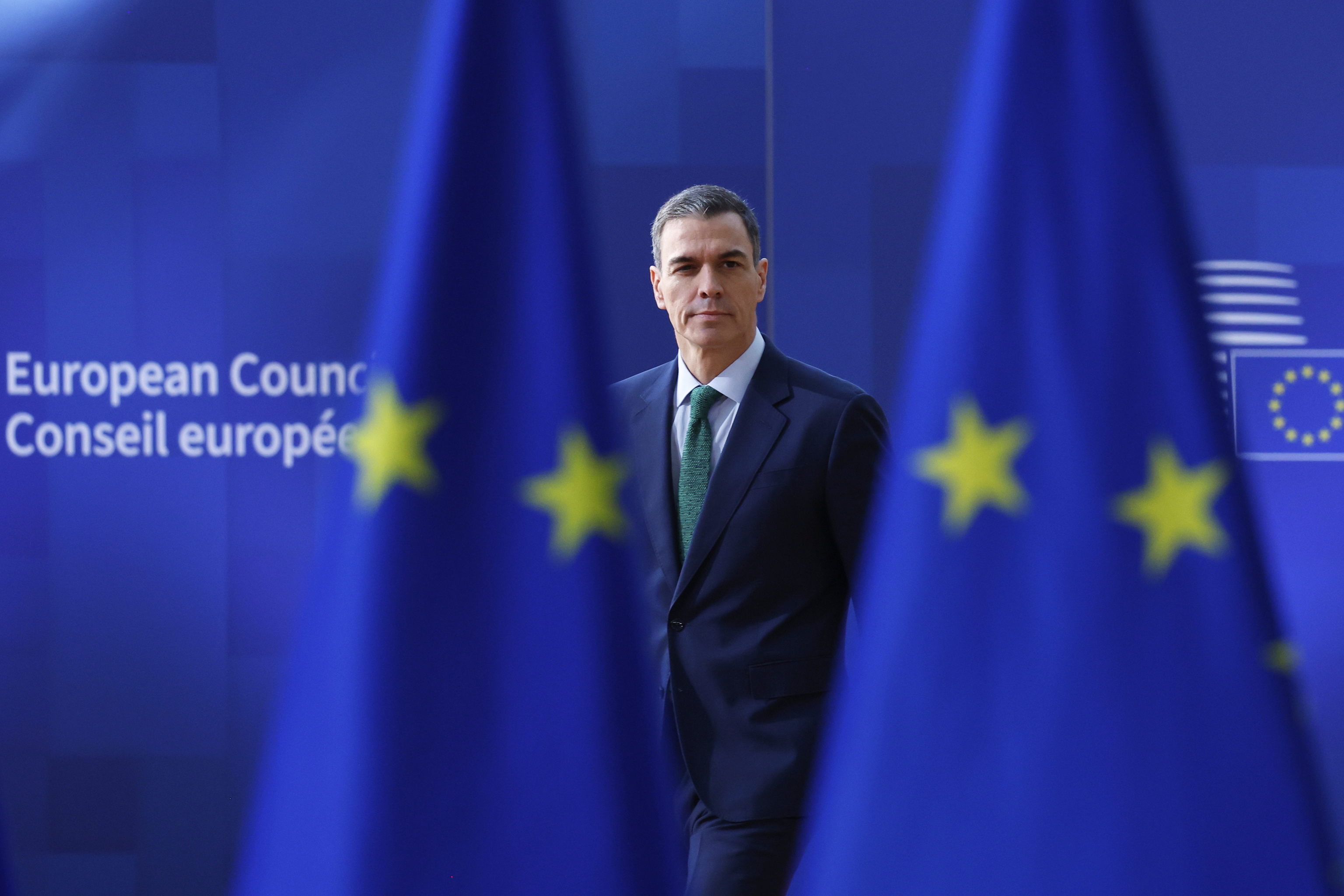Spain did not close 2024 with a military investment of 1.4% of Gross Domestic Product (GDP), as stated by the President of the Government earlier this week. The official figure, or at least the one provided by NATO, was 1.24%. This means that Pedro Sánchez's plan to reach 2% of Defense spending has a gap of up to 3,000 million. The Government is trying to fill this gap by claiming to have sent new information to the North Atlantic Treaty Organization and that the report signed by the Secretary-General, Mark Rutte, is outdated.
"Spain closed 2024 with a Defense investment of 1.4% of the national GDP, as reported to NATO. Our country will reach 2% in 2025, as stated in the Security and Defense plan. The documentation provided by Spain to NATO confirms this 1.43% at the end of 2024. The lower percentage figures published are based on estimates made long ago," the Government maintains.
NATO sources, however, state that they are not aware of this additional information, at least for now they have not received the data proving that 1.4% investment. Although, at the same time, they do not reject that this may be possible. But for now, what is stated in the document published yesterday is that Spain spent 19,723 million on Defense in 2024, while Sánchez himself stated, in the press conference he held last Tuesday, that the goal is to reach 33,123 million in spending in 2025. Therefore, the Government would have to make an additional effort of up to 3,000 million to add to the almost 10,500 million already included in the plan.
The NATO report, which is the main annual reference in the military field, also points out that Spain reduced its military investment during 2024: it went from 1.28% to 1.24% of GDP, once again becoming the country that spent the least on Defense among all NATO members. And if we consider the 1.4% that the Government claims is the reality and that Sánchez himself stated in the press conference presenting his plan, the situation is only slightly better. It would only surpass Belgium, Luxembourg, and Slovenia, still behind Italy and Canada, and obviously below the 2% which is now an outdated goal.
This figure will certainly be revised upwards at the next NATO summit, to be held in June in The Hague, and the new figure will be at least 3%. It may even be as high as 3.5% of GDP, as Rutte has mentioned on some occasions. In any case, Spain will once again be far from the new goals of the Alliance.
The document from the organization led by the former Prime Minister of the Netherlands also emphasizes that there are now 22 countries that have exceeded the 2% investment in Defense. And it highlights that the group of European countries that are part of NATO plus Canada increased their Defense investment by 19%. "NATO allies in Europe and Canada invested a total of 486 billion US dollars in Defense, a 19.4% increase in real terms compared to 2023," the Secretary-General himself states.
This significant increase contrasts with the Spanish situation, regardless of the reference used. If we look at the NATO figure, it reveals a reduction from 1.28% in 2023 to 1.24% last year. However, if we accept the update that the Government claims to have sent, the increase would have been just over 9%. Not even half of the combined data from Europe and Canada.
Beyond all this, the possible new data, patches, and tenths, the report clearly indicates that much more investment in Defense will be necessary. The fact that the new target of at least 3% is being aimed for is already evident, but Rutte puts it in writing in case there is any doubt. "European Allies and Canada must make a qualitative leap in terms of the contributions and capabilities they provide. For this, substantially more investment will be essential," he clearly states, also sending a message to try to appease the United States.
